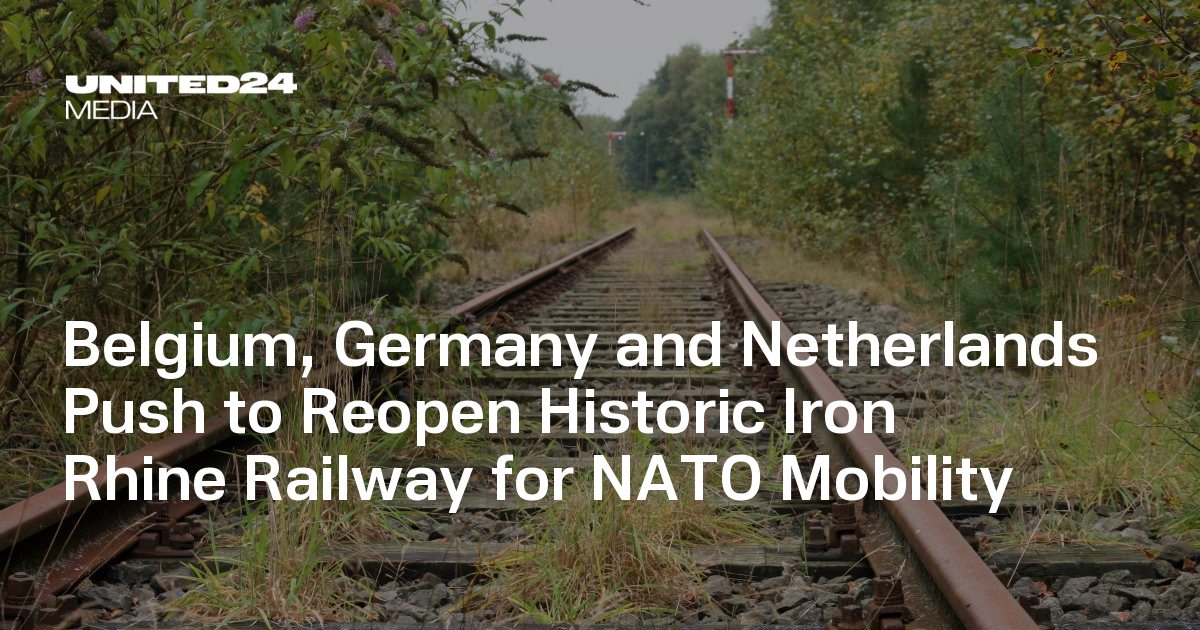Belgium, Germany, and the Netherlands have agreed to reopen the historic Iron Rhine railway to enhance military mobility in Europe amid growing security concerns over Russia, according to a Politico article published on August 14.
The decision, announced by Belgian Prime Minister Alexander De Croo and Dutch Prime Minister Dick Schoof, aims to restore the 19th-century route between Antwerp and the Ruhr region, which has been inactive since 1991.
According to Politico, the upgraded line will allow NATO to move troops and heavy equipment more rapidly across Western Europe, bypassing bottlenecks on other transport routes.
“This project is part of a broader effort to strengthen Europe’s defense infrastructure and its ability to respond quickly to threats,” De Croo said during a joint press conference on August 14.
-2bfcaf8959fd30f02a646a8354d5582d.jpg)
The plan foresees modernizing tracks, bridges, and signaling systems to meet both civilian freight needs and NATO’s military standards.
The Iron Rhine’s reopening is also expected to bolster trade links between the Port of Antwerp — one of Europe’s largest logistics hubs — and industrial centers in Germany’s North Rhine-Westphalia region.
RBC-Ukraine reports that the project aligns with the EU’s Military Mobility initiative, which funds infrastructure upgrades for dual civilian-military use. The governments involved have not disclosed the full cost of the works, but feasibility studies are underway, with construction expected to begin within the next few years.
Earlier, it was reported that Finland approved a multi-billion-euro railroad project linking Finland, Sweden, and Norway to support NATO compatibility and improve transport across the Arctic region.

Related articles
